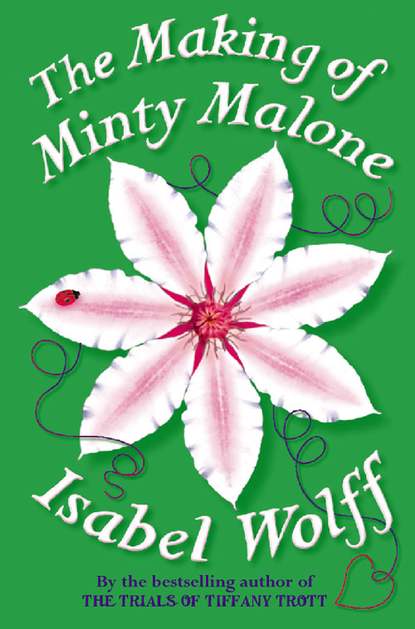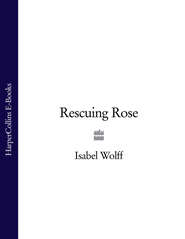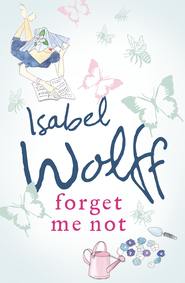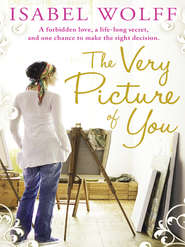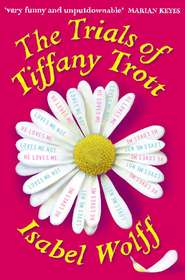По всем вопросам обращайтесь на: info@litportal.ru
(©) 2003-2024.
✖
The Making of Minty Malone
Автор
Год написания книги
2018
Настройки чтения
Размер шрифта
Высота строк
Поля
‘Oui, madame?’ It was the same concierge, still on duty.
‘You did say “round the clock”, didn’t you?’ I whispered.
‘Oui, madame.’
‘Could you get me something then?’
‘Of course, madame. At the George V no request is too big, too small, or too unusual.’
‘In that case, can you get me a copy of Great Expectations by Charles Dickens. In English, please,’ I added.
‘And you would like this when, madame?’
‘Now.’
‘Eh, bien sur …we do have a small bibliothèque. I will ‘ave a look.’
‘Thank you.’
Five minutes later there was a knock on the door and a bellboy appeared, clutching a leather-bound copy of the book. I gave him twenty francs. Then I sat down in the sitting room and turned the thin pages until I found what I was looking for.
[Miss Havisham] was dressed in rich materials – satins, and lace, and silks – all of white. Her shoes were white. And she had a long white veil dependent from her hair, and she had bridal flowers in her hair, but her hair was white …But I saw that everything within my view which ought to be white, had been white long ago, and had lost its lustre, and was faded and yellow. I saw that the bride within the bridal dress had withered like the dress, and like the flowers, and had no brightness left but the brightness of her sunken eyes. I saw that the dress had been put upon the rounded figure of a young woman, and that the figure upon which it now hung loose, had shrunk to skin and bone …
‘How are you feeling, Minty?’ I heard Helen say.
‘How do I feel? Well, just a bit pissed off.’ My new, ironic levity surprised me. ‘I’m going to design a new range of bridal wear,’ I added.
‘Really?’
‘Yes. I’m going to call it “Anti-Nuptia”.’
‘Oh, Minty.’
I looked round the dining room and felt sick. It was full of infatuated couples. Just what you need when you’ve been abandoned by your husband-to-be. They all looked sated with sex as they locked eyeballs, and tenderly rubbed ankles under the tables.
‘Why don’t you eat something?’ Helen said.
‘I can’t.’
‘Go on, try,’ she said, pushing a basket of croissants towards me.
‘Impossible,’ I said. And it was. I’ve never dieted. I’ve never really had to. But now it was as though someone had turned off the tap in my brain marked ‘Eat’. The petit pains might as well have been made of plastic for all the interest they aroused in me. All I could manage was a few sips of sugary tea.
‘What shall we do today?’ I said.
‘I don’t know,’ said Helen. ‘I haven’t been to Paris since I was twelve.’
‘I know it pretty well,’ I said. ‘In fact, I’ve been here eleven times.’
‘Minty,’ said Helen slowly, while she delicately chomped on a pain au chocolat. ‘Why did you choose Paris for your honeymoon when you’d already been here so often?’
‘I didn’t choose it,’ I replied. ‘Dominic did. I would have preferred Venice,’ I went on with a shrug, ‘but Dom said the train journey would take too long, and so Paris it was.’
‘I see,’ she said, archly. ‘That was nice of you.’
‘And of course Paris is a lovely city.’
‘Minty …’ said Helen, carefully. She was fiddling with her teaspoon.
‘Yes?’ Why on earth was she looking at me like that?
‘Minty,’ she began again, ‘I hope you don’t mind my saying this, but you often seemed to do what Dominic wanted.’
I thought about this for a few seconds.
‘Yes,’ I conceded. ‘I suppose I did.’
‘Why?’
‘Why?’ Why? God, why did she have to ask me that? ‘Because I loved him,’ I replied, ‘that’s why. And because …’ I felt my throat constrict ‘ …I just wanted him to be happy.’
She nodded. ‘Well, what shall we do today?’ she said, briskly changing the subject.
‘We can do whatever you like,’ I said, bleakly. ‘We’ll be tourists.’
And we were. That first morning we walked along the Seine then crossed the Jardin des Tuileries into the Rue de Rivoli. People strolled under the colonnaded passageways or sat outside, smoking in the warm sunlight. We crossed the Place du Carrousel and walked towards the Louvre. Helen gasped when she saw the glass pyramid, its triangular panes glinting and flashing in the midday sun.
‘It’s incredible!’ she said. ‘It’s like a gigantic diamond.’
‘Yes,’ I replied flatly. I fiddled with my engagement ring – a solitaire – which I still wore, on my right hand.
‘Let’s find the Mona Lisa,’ said Helen as we made our way inside. We walked up the wide balustraded stairway on to the first floor of the Denon Wing. We paused before paintings by Botticelli, Bellini and Caravaggio, and altarpieces by Giotto and Cimabue. In one gallery was a painting by Veronese, so vast it filled one wall.
‘It’s the Wedding at Cana,’ said Helen, looking at the guide. ‘That was Christ’s first miracle, wasn’t it, when the wine ran out?’
I found myself wishing He could have performed a similar stunt for me when my husband-to-be ran out. We passed through a long, window-lined corridor, which glowed with rich paintings. Mantegna’s martyred St Sebastian, pierced with sharp arrows, couldn’t have been in more pain than I. My shards were psychological, but no less sharp for that.
We followed the signs and found the Mona Lisa behind bulletproof glass in Room 6. A bank of people stood in front of her, discussing her elusive smile.
‘– Oh, she’s so cute!’
‘– Che bella ragazza.’
‘– Sie ist so schone.’
‘– That’s real art, Art.’
‘– Elle est si mystérieuse, si triste.’





